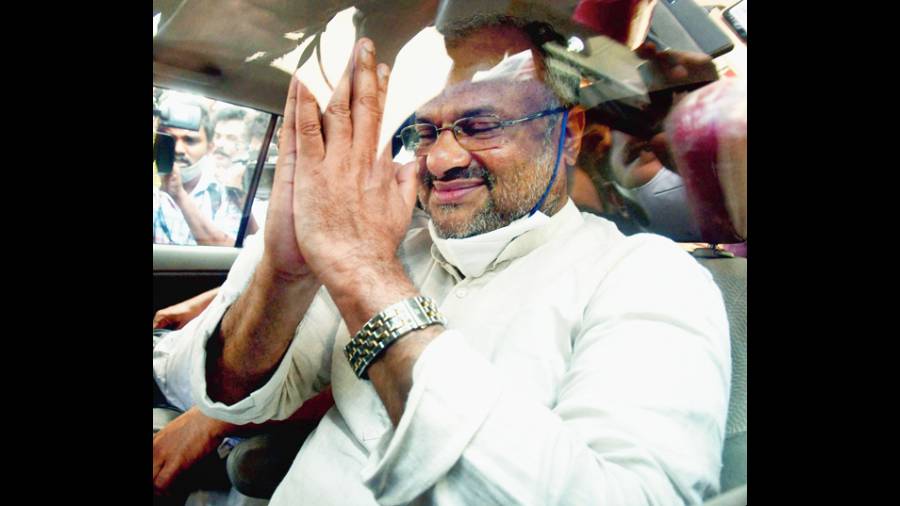The trial court that acquitted Bishop Franco Mulakkal of all charges of raping a nun has broadly based its verdict on inconsistencies on the part of the survivor and investigation lapses that included failure to recover the nun’s mobile phone to which the clergyman allegedly sent lewd text messages.
The additional sessions court of Kottayam that acquitted the 57-year-old bishop on Friday ruled that “the claim of the victim that she was raped on 13 occasions under duress cannot be taken reliance on the basis of her solitary testimony. There is no consistency in the statement of the victim”.
The court also concluded that the survivor could not be categorised as a “sterling witness” on account of the inconsistencies.
“In view of the inconsistent version of the victim, this court is of the view that she cannot be categorised as a sterling witness,” judge G. Gopakumar noted.
The nun had accused the former bishop of Jalandhar of raping her 13 times between 2014 and 2016 at her convent in Kottayam. After enduring the alleged sexual assaults, she lodged a police complaint in June 2018 after the church purportedly ignored her repeated complaints.
The court laid out several points based on which it arrived at the verdict.
It noted that the survivor had in December 2016 informed Sisters Neena Rose and Anupama — two of the five nuns who fought for her — and others, including the doctor who examined her, a bishop and a cardinal that the accused was forcing her to sleep with him, but did not tell them that he had sexually abused her 13 times.
The court noted that the survivor had not disclosed “penile penetration” in the first information statement recorded by a woman constable. Instead, the court stated, that she had only narrated how the accused violated her with other means.
The survivor’s explanation was that the statement was recorded in an unsecured environment and hence she could not narrate what she endured in minute details.
The court questioned her lack of disclosure to the lady doctor who examined her for penetrative sex. “These inconsistent versions at different point of time to different persons pose questions on her credibility,” it said.
It also cited evidence laid out by the defence that showed that she had travelled with the accused and participated in church events on the immediate days after the alleged offences.
The court also found fault with the prosecution for not explaining the survivor’s inconsistencies. “Prosecution has failed to give proper explanation for the inconsistent version.”
The court noted that the police could not recover the survivor’s mobile phone to which the accused allegedly sent her vulgar text messages and described the explanation as “unsatisfactory”. The prosecution had explained that the mobile phone could not be retrieved as the survivor’s family, whom she had passed it on to, had eventually given it to a scrap dealer.
Although the police had seized a laptop in which the nuns who backed the survivor had copied the bishop’s text messages, they could not be recovered as the hard disc was damaged. “The laptop was also not subject to scientific analysis, as it (prosecution) claimed the hard disc got damaged,” the court noted.
The survivor had alleged that she was abruptly removed from mother superior-ship and demoted to an ordinary nun after she began resisting the bishop’s sexual advances.
The court, however, ruled that the survivor started complaining against the accused soon after he initiated an internal inquiry on the complaint of her cousin, Jaya Francis, that the survivor was sleeping with her husband.










